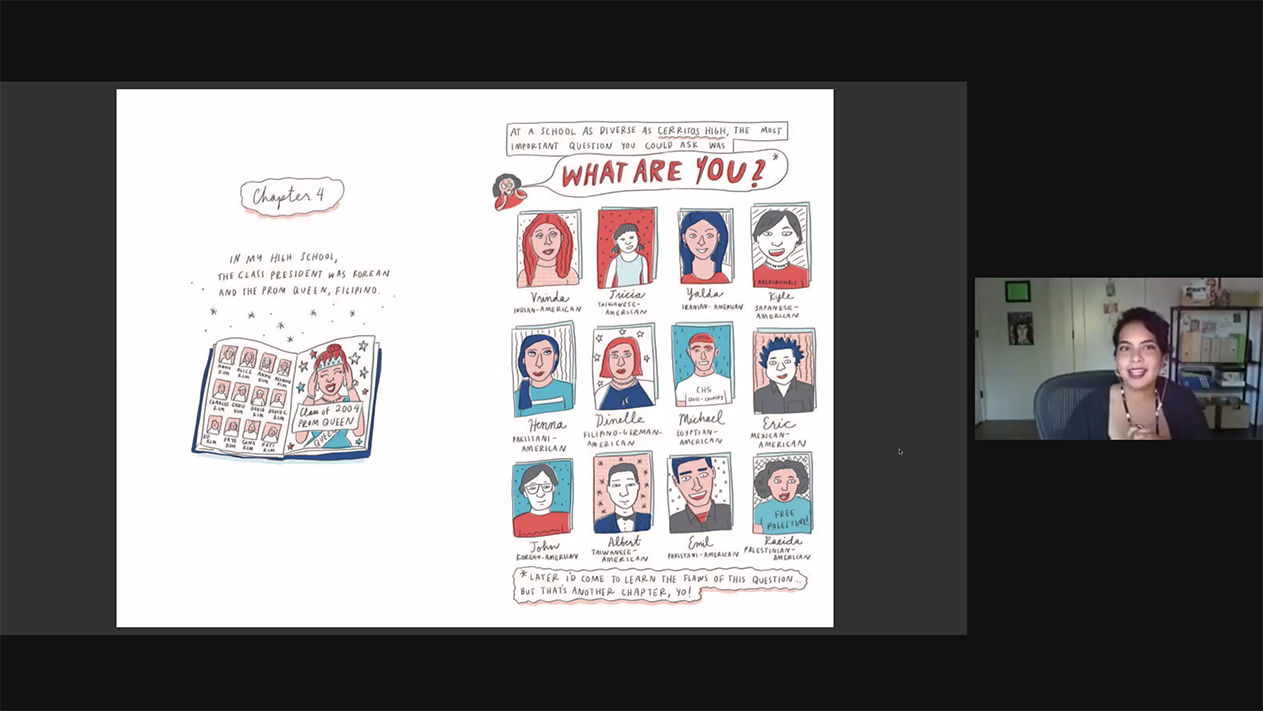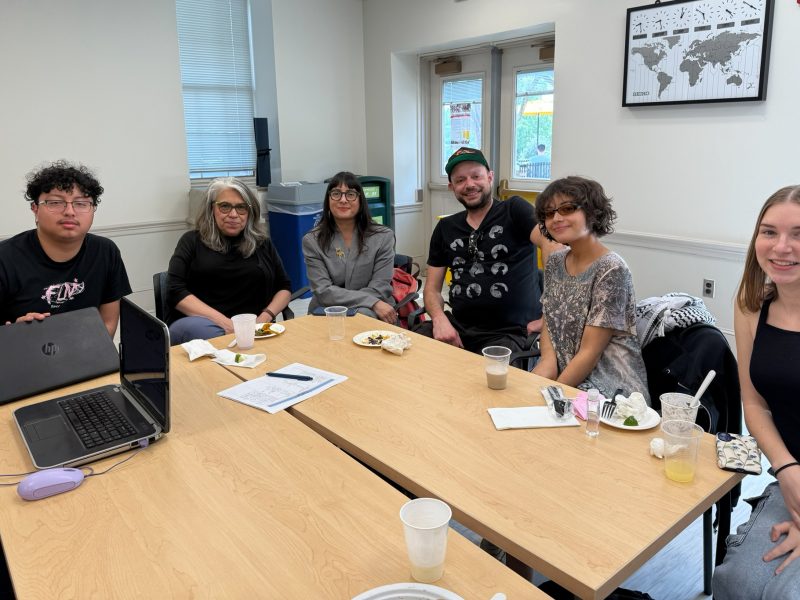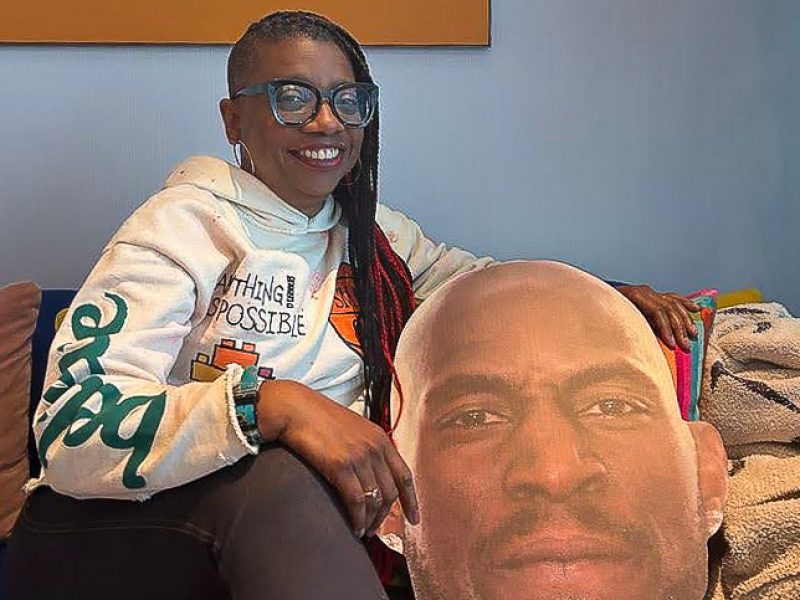As Malaka Gharib flipped through the drawings of her graphic memoir and read a chapter aloud on Thursday, I was captivated by her tale of navigating her identity while growing up as a Filipino Egyptian American. Her book, I Was Their American Dream, was an eye-opening look into the experience of someone whose life was so different from my own, and yet also a relatable story involving a homecoming dance, feeling like an outsider at school and a crush on a punk skater boy, Jorge.
Participants sat quietly on the Zoom call for a discussion led by the Multicultural Involvement and Community Advocacy office about Gharib’s book. As she read, they laughed, listened and nodded their heads in understanding of what it means to be a young adult with identities that lie outside of society’s standards.
Gem Daus, an Asian American studies lecturer at this university and a friend of Gharib’s, led the discussion, in which they talked about the idea of identity and culture through the lens of Gharib’s life experiences.
Gharib said she used to call herself half-Filipino and half-Egyptian. However, she said, when she is with her Filipino family she feels fully Filipino, and when she is in Egypt she feels completely Egyptian.
“I really feel like my experience as a Filipino is authentic, as an Egyptian is authentic, as an American is authentic,” Gharib said.
[The best DC-area thrift stores, ranked]
Daus weighed in, saying that trying to prove each identity gives power to those trying to police your identities. Giving your own meaning to your identities and pushing away others’ attempts to do so are what’s most important, he said.
“Whatever your experiences are, those are legit, those are valuable,” Daus said. “And they count as Filipino.”
Gharib also spoke at length about navigating the differences in Filipino and Arab culture and her parents’ differing expectations of her. Gharib mentioned that people in the Arab world are typically very outgoing and make friends easily, while her mother was more protective.
The rules surrounding food were also very different. Gharib explained that in Filipino culture, she would eat dishes that include pork, such as sinigang. However, Muslims, like her father, don’t eat pork.
“I would just have to pretend like that life didn’t exist when I was with my dad in Egypt,” Gharib said.
The second chapter of Gharib’s book explores this idea, with a chart with checkmarks on what is and isn’t appropriate in Filipino, Arab and American cultures illustrating the concept.
Gharib said she was told to “act like white people” to fit in with American culture when she was younger. She watched what they wore, how they did their hair and their mannerisms.
[There’s no way for ‘SNL’ to be satire in 2020]
Gharib said she never thought about showing her culture until another Filipino American intern started working at her office and sought out other Filipino Americans to connect with over lunch, which turned into a potluck. This was the first time Gharib ate Filipino food in the office.
“I spent a lot of my early career at the workplace trying to fit this identity of a confident white person,” she said. “I just want to be Filipino at work.”
Gharib said her American dream is to consider herself “just as American as everyone else.”
“I love my culture. I love my family,” she said. “I like the stuff that we do, I like the stuff that we eat, and I like our languages.”
One of Gharib’s favorite things about having multiple cultural identities is when she gets to see them come together, like when her Filipino sister joined the Arab side of her family to smoke hookah, listen to Arab music and eat Arab snacks after a book event she held in Los Angeles.
Gharib said the story of visiting Egypt with her husband just felt like a natural place to end the book. Seeing him in that country showed her this piece of her identity would remain important in the next chapter of their lives.
“What I love about being half is that you can mash up all these cultures together, and it just kind of works and flows,” Gharib said. “This is my normal.”



